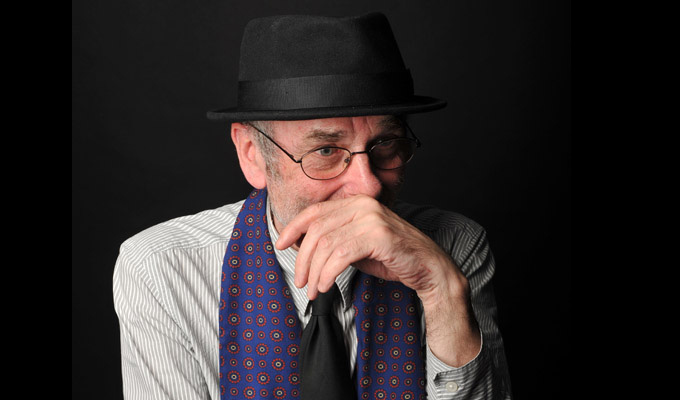Minimalism vs The Cloud
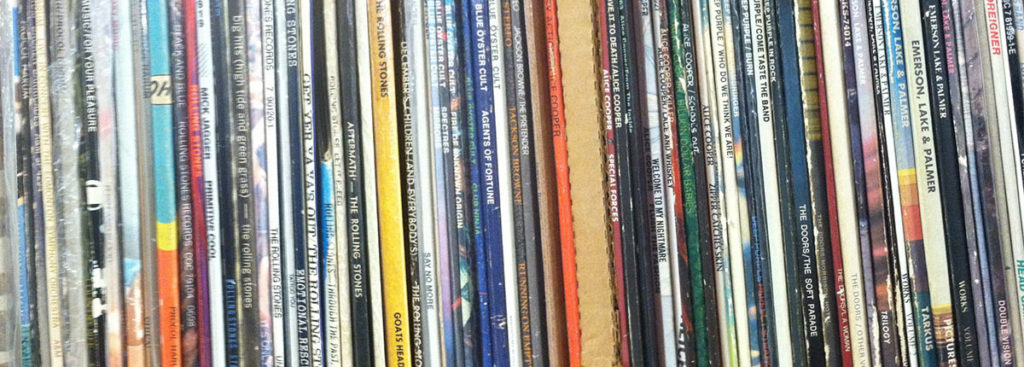
My stereo system (a turntable, two bookshelf speakers, an amplifier, and about 30 vinyl records) is a disgrace to my minimalism. I don’t need it and I don’t love it. But I do like it. As one school of minimalism would put it, it sparks joy.
I treat it as temporary. I might sell it one day, when it ceases to deliver the goods or when I need the money.
I keep wondering if I’d rather have the ullage (the empty space) instead of the stereo system. For now the answer remains: no, I’d prefer to have the records.
Part of the reason for this return to physical media was to buck against digital streaming and jab-screen devices. In many ways, I’m a 20th Century boy.
The bottom line, really, is that I don’t enjoy streamed music. Playing it has little appeal to me as an activity, so while the storage solution of The Cloud might look like a good one, it’s a failure in that the new system doesn’t actually deliver the benefits of the old one. Quitting something you enjoy without a higher goal (e.g. the plan is to move country) is no solution to anything.
I was going to write more fully about this today but, by happy coincidence, my friend Carrie just did the same. She speaks of the benefits of physical media:
It feels like [vinyl] somehow matters more, and because I’m listening with my whole self it’s much more emotionally affecting too.
[Streaming has] broken many artists’ ability to make a living from music. When you can stream pretty much everything ever recorded for less than you’d pay for a single vinyl LP, your streams are almost worthless in terms of what any artist gets paid.
and of the reservations about it:
vinyl is hilariously expensive and may need you to buy a whole bunch of new hardware too
The reasons not to buy a bunch of vinyl records remain the same as when I first put thought into this. It’s stuff. But as much as I dislike the cost and the responsibility of ownership, I also dislike the impoverished world offered by streaming.
The Cloud is a good place to stash your ugly, boring administrative documents. And it makes photographs more sharable and stops them from collecting dust. But music? Not everything needs to be invisibled away. I have real art on my walls too, not those horrible screens you can get now. And real books, not e-books. The physical world is better for you sometimes; to move around and manually make something happen is appealing to the primate brain. And we are primates.
I’m not saying every primal urge should be humoured or that everything should be analogue instead of digital but, overall, a balance can be struck in the interests of mental health and general quality of life.
I’d rather be with my partner “IRL” than look at her face on Zoom. I’d rather write notes with a pencil on paper than in an app. And I’d rather, for now, softly drop the needle into a shiny black groove instead of jab dumbly at yet another screen while wondering if I’m really hearing the proper version or if the streaming provider is punishing the artist I’m currently trying to admire, while simultaneously cursing the range of bluetooth. I mean, yawn.
I may of course feel differently about this some day. Perhaps when I next move to a different apartment.
*
New Escapologist is a friend of minimalism. Get the all-new Issue 15 in either print or digital format today (or whenever you’re ready).
Minimalism
Correct!

★ Buy the brand-new Issue 12 of New Escapologist at the shop; buy our most popular digital bundle; or get the Escape Everything! book.
Minimalism 101
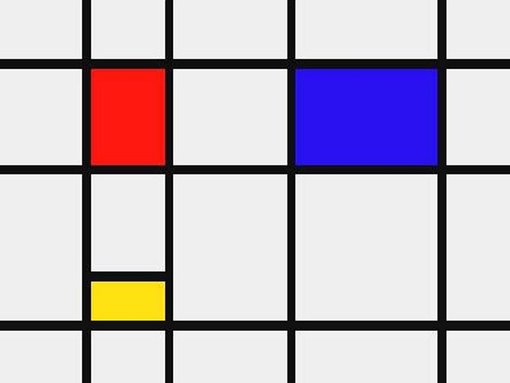
This Thursday evening, at 7pm, I’ll be teaching a class in minimalism (or ‘living with less’) at Monastiraki in Montreal.
The event is part of Monastiraki’s “School PWYC” series in which people teach classes in whatever they’re enthusiastic about.
This class will explore the idea of living with very few material possessions. We’ll look at the reasons we might want to do this: to save money, to save the planet, to save our souls. We’ll discuss some hints and tips on how to live minimally, how to benefit from a minimalist hobby, and how to appreciate the bare necessities. We’ll celebrate some of the heroes of minimalism, from 19th-Century rebel printer William Morris to future-facing digital minimalists.
I also plan to sing The Galaxy Song and Bear Necessities with ukulele accompaniment. This is a first for me so come along and witness history being made.
Here’s the event page at Ye Olde Book of Faces.
I daresay I’ll have some copies of New Escapologist to sell, and I’ll be happy to hang out and chat after the event too. Come along if you’re in the area!
Buy the complete back catalogue of New Escapologist with a 10% discount today.
Or buy the complete back catalogue on PDF, with £1 off the price each issue.
Can’t get enough minimalism
A few people emailed us recently to declare a new-found enthusiasm for minimalism. Believe me when I say that if these particular individuals are excited about minimalism now, there’s hope for the whole world yet.
There often comes a point when a fringe activity becomes adopted by the mainstream; a point when a living practice is no longer seen as eccentric. Recycling is a good example. In the 80s, my family seemed fairly alone in separating our garbage into plastic, paper, glass, and organic waste. We weren’t exactly hippies, which suggests the tipping point was already on the horizon, but our activity was certainly seen as odd by our friends and neighbours. In the 90s, recycling became seen as a responsibility, but it was still fashionable to shirk it. Today, the infrastructure to support recycling is convenient and ubiquitous, and recycling has become a matter of civic pride. What do you mean you don’t recycle?
I think minimalism (or ‘Reduction’ if you remember the most rejected of ‘The Three Rs’) is in a similar place to where recycling was in the 90s: people are becoming aware of the advantages, to stop reacting so violently to the suggestion that they voluntarily curb their consumer privileges, and to appreciate the minimalist aesthetic. Tablet computing is already encouraging a post-materialist attitude in some areas of consumption, and cloud computing promotes a certain distance between you and your stuff.
I think we’re on the brink of a third wave in terms of our attitudes to stuff. The new cycle will concern itself with empty space and quietness as the new luxury goods. Why a third wave? Peak Oil: the idea that we’ve already reached the point in time when the global production of oil reached its maximum rate, after which total global production gradually declines. We have to get used to not being able to buy cheap, disposable, largely-plastic products. We have to get used to inaccessibility due to products not being so readily and cheaply shipped.
Technology will partway solve the problem. Oil can be replaced by renewable energy resources. But to really solve the problem, we have to adjust to a new relationship between humans and stuff. It’s not a greenie fantasy anymore, but a cold necessity. Out goes the cheap and disposable, in comes the expensive and durable. Out goes lots of pointless stuff, in comes maximum utility and beauty. Out goes the idea that high-tech will save everything, in comes the balance of Brave New and Brave Old Worlds.
Space and quiet will be the new luxury goods. You’ll see. Buy shares in the quiet industries.
Criticisms of minimalism
We often talk about minimalism at New Escapologist and our interest is three-fold:
– Environmental: by reducing your consumer habits, you have less impact on the natural environment.
– Financial: by consuming less, you don’t need to spend as much money. Consequentially you don’t need to work so hard at earning money.
– Aesthetic: by reducing physical possessions, you can have a cleaner, more manageable living or working space.
In our time talking about minimalism, we’ve encountered a few criticisms. Some of them are fair, some understandably verge on the hostile (understandable because minimalism asks people to curb their consumer freedom), and others are from people who’ve completely missed the point. In this post, I respond to some of the most common or most remarkable.
I have a guest post at a blog called Skool of Life. My piece responds to six real and fairly common criticisms of minimalism.
The post has also resulted in some reasonable comments, to which I am able to respond. In particular, a bloke called Andy worries that defining one’s self as a minimalist is as bad as defining yourself as a materialist. It gave me the opportunity to say this:
1. The desire to define yourself one way or another is a piece of psychological baggage a minimalist might want to jettison. Let’s not worry about defining ourselves. Self-expression is a nonsense championed by Freud’s nephew, Edward Bernays. It is little more than a marketing device that minimalists should proof themselves against.
2. Even if you choose to define yourself by owning a small number of things, your doing so is certainly better than defining yourself as someone who owns a large number of things. Your reluctance to consume will help the environment and help your wallet. So, while I’d advise against defining yourself in this way, it is still outwardly and empirically better than defining yourself as a materialist.
Enjoy the post! Please Tweet the link around if you can.
If you’re new to this site, you may like to subscribe for free to our RSS feed, or to visit our shop.
On resistance, minimalism, workplace tedium and cottage industry
The only real difference between an Escapologist and someone who simply hates their job is that the Escapologist has begun to take deliberate measures toward actually changing things. I think most people who hate their job don’t realise that escape is an option.
From an arrogant interview I did for Andrew Williams at his new blog, Rainy Day Wonder.
On Redundant and Neglected Objects
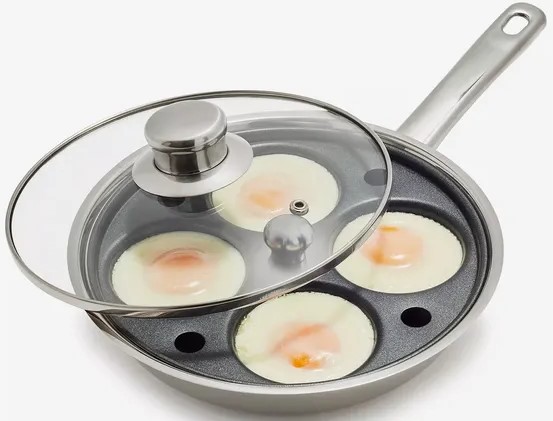
Comedian Richard Herring (who we interviewed way back in Issue 10) is moving house. Packing up his kitchen stuff, he writes in his blog that
it’s weird to touch every single thing that you have in your kitchen in one weekend. And realise that for many things it’s the first time you’ve touched them since you’ve bought them.
As a regular reader of his blog, I know that Rich prides himself on a certain material efficiency. He’s keen on recycling, for example, and on getting every last drop of utility out of single-use carrier bags. And yet…
I rarely if ever have poached eggs at home, but for some reason had at least five devices designed to give you the perfect poached egg that I HAVE NEVER TRIED OUT! Well I did have. Now they’re in a box to go to charity for someone else to buy, put in a drawer and NEVER USE.
Those egg poachers will probably survive way longer than anyone who is alive today and yet never fulfil their purpose of poaching an egg. I don’t know whether to feel sad for them or happy. Is that a life well lived or a waste of existence[?]
I firmly believe it’s a waste of existence. Imagine being one of life’s understudies and never getting to step into the spotlight.
It’s something that bothers me, actually. If I have anything redundant in my home (let alone five of them), I feel sad about it. I want everything in my home to be used. No one thing should be neglected.
Part of my feeling this way comes from my theory that waste happens at the point of origin, not at the moment of disposal. The waste occurs when the raw materials are torn irreplaceably from the earth. If we never mined or extracted oil again and had a completely circular economy, there would be no more waste. Every egg poacher in the world would be either used or stripped for its materials to make something that can be used.
Too much emphasis in eco-guidance falls into the categories of reuse and recycling: not enough people call for reduction. Reuse and recycling theoretically delay more waste from happening, but only a reduction in objects being produced will really solve our problems. And if we want to reduce the number of objects in the world, the first objects to be eliminated should be the redundant ones.
or should I stop giving inanimate objects the power of thought and emotion[?]
It’s called Kami in Japan, the idea that everything has a soul, even inanimate objects. Even if that’s not “real,” it’s useful to keep in mind when deciding if something is living up to its potential or not. It’s perfectly possible for an object to “experience” neglect, exclusion or redundancy.
Oddly enough, the most redundant items in my home are also egg-related: two eggcups. They’re of a groovy mid-century design and taken from my grandparents’ kitchen along with some other bits and bobs when they died. I don’t eat boiled eggs very often so they don’t really get used enough. They’re on the chopping block of minimalism really, but I like them. So I’d better start eating boiled eggs.
*
New Escapologist Issue 16 is available in both print and digital formats.
Stop, Thief!
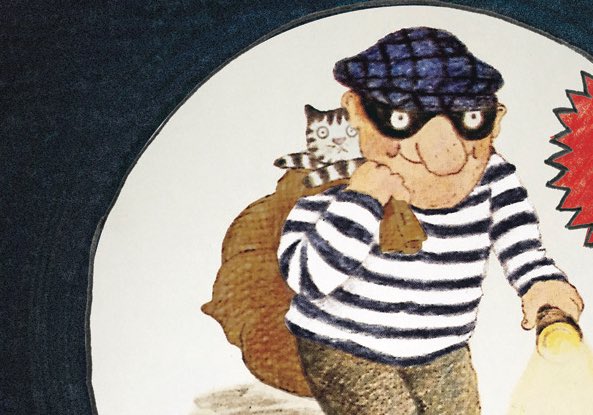
A random thought about ownership in relation to minimalism.
Once, when I was working a short-term contract, I found a funny coconut monkey (you know the sort of thing) in a dusty storage box. It looked like the souvenir of a Wage Slave’s holiday, brought back from Hawaii for ambivalent co-workers.
The monkey was so grotesque and kitschy that I almost took it home, but then I realised that this would in fact be stealing so I left it in the box.
Most people wouldn’t even have thought of taking it, would they?
A similar thing happened a decade earlier. Just before leaving for a long spell in Canada, I found a novelty coffee mug in the back of a girlfriend’s kitchen cupboard. It said on it: “you can take the girl out of Glasgow, but you can’t take the Glasgow out of the girl.” Well, this would be the perfect talisman to take to Montreal! “Could I have this?” I asked. “No,” she said, bewildered that I’d just ask to take something from her house.
I think this weird (occasional!) willingness to just take something that isn’t mine comes from years of minimalism because:
1. I’ve honed a pseudo-spiritual belief that ownership is a relatively empty concept. It’s rarely more than a case of displacement: a thing is “here” instead of “there.” Big deal.
2. The idea of things not being “in circulation” frustrates me. I don’t want anything to be neglected or out of service. It would be better to have X valued objects in the world, all moving around and everyone having a turn with them, than 1000X objects in the world, all locked away in boxes.
My literally criminal urge to “take” is probably the flipside of the more widely documented minimalist urge to give things away. When I’m done with something, I return it to the world by taking it to a charity shop, by listing it on eBay, or by leaving it on the street with a “please take” sign.
Or maybe I’m just a secret klepto.
You never really own anything. Either it breaks and becomes garbage, which you then surrender, or you die and someone else inherits it or throws it away.
*
The Escapes of John Dowie
In February I read The Freewheeling John Dowie, the wise and funny memoir of a comedian who ditched the conventional notions of career success, sold his home and all of his stuff, and took to the open road with a bicycle. I found the book utterly compelling and suspected I’d found my “book of the year” rather early.
He writes in the first chapter about his early brushes with employment. He mopped floors and answered phones but the funniest bit is when he works in a branch of W H Smith (which, coincidentally, I also did, albeit in 1999 rather than 1966):
“When you work for W H Smith,” the twenty-year-old in charge of the paperback department told me proudly, “you’ve got a job for life.”
Apart from the chilling horror such a statement generates…
He lasts nine months at Smiths before seeing a Spike Milligan play at the Grand Theatre in Wolverhampton and deciding to become a comedian. As you know, I love to hear about these epiphany moments. Most people just drift between life chapters and never really “decide” anything, which is what makes these moments so special.
So he concocts a simple escape plan: work and save until you have enough money to put on a comedy show at the Edinburgh Fringe. And then he does it:
After three months of two jobs and very little sleep I managed to raise the money I needed – about £500. I took myself to Edinburgh, performed every day for three weeks, returned to Birmingham with a vastly improved act, got myself an Arts Council Grant and, I’m happy to tell you, haven’t done a day’s work since.
When comedy itself came to feel like a job, Dowie looked for other freedoms. He sold everything. His friend Stewart Lee writes:
Each time I [visited him,] Dowie had less stuff. In the end he had reduced his possessions to five basic food groups; records by Bob Dylan and Moondog; books by William Blake and [Philip K.] Dick; and some Batman comics. It was as if he was preparing to depart. And pretty soon he did. No-one in our gang knew where he’d gone, but we knew he could now carry everything he ever wanted in a backpack, and he’d bought a bike.
And in Freewheeling Dowie writes of his minimalism:
At first I thought that getting rid of the vinyl I’d been collecting since the Sixties would be a wrench. But, with each cardboard box that [the record dealer] packed, carted off and placed in his car, I felt a lightening of the spirit. It lightened even more when he paid me. Several hundred quid. I was astonished. I’d been hoping for a tenner.
Speaking of money, it cost a pretty penny for me to get a copy of Freewheeling, even though it was only published in 2018. Luckily, my copy was badly damaged in the post and I was able to get a refund, reading it in the end for free. Take that, Music Magpie!
Anyway, I got in touch with Dowie about how much I loved his book. I couldn’t help myself. When he explained that the rights had reverted to him since the book went out of print, I pulled some strings and levers to get it re-published, albeit only as an e-book for now. You can buy it here and I recommend that you do.
How to Get Rid of Things
If you’re trying maximise your freedom by downsizing or if you just want to benefit from minimalism in general, you’ll sooner or later find yourself in a phase of “getting rid of things.”
What is the best way to get rid of things? I mentioned that this guy was wasteful in getting rid of things quickly by taking them to charity shops or the tip.
Charity shops, I’m sorry to tell you, will probably also take your things to the tip. Or leave them outside the shop in garbage bags ready to be taken to the tip. Charity shops are overburdened with donations. Only the finest junk will make it onto their shelves. Besides, charity (in the sense of large businesses posistioning themselves as middlemen) sucks. We need social reform, not charity. Their brands are sometimes toxic. I like the idea that they keep used-but-useful goods in circulation, but they’re increasingly crap at this.
So, here are the best ways to get rid of stuff, in order:
1. Don’t acquire it in the first place. This is probably too late if you’re currently purging, but it’s worth remaining vigilant to acquisition. Getting rid of stuff is only one side of the methods of minimalism; the other and arguably most important side is not buying or otherwise acquiring things to begin with. You can adopt a minimum acquisition ethic any time and future purges will be less onerous.
2. Sell it in person to non-charity-based second-hand shops (especially book and music shops). This is good for batches of things, makes money for yourself, and keeps used-but-useful things in circulation.
3. Sell it in person via Craigslist or Gumtree or similar. People will collect it from your house if you make it clear that you won’t deliver. Top tip: charging a token amount of money makes people take the transaction more seriously than if you list it for free (collectors of free junk often never turn up). Selling is generally better than giving away for free, not just because you’ll make useful beer (or escape fund) money from the exchange but also because the thing you’re getting rid of will go to someone who actually wants or needs it instead of greedily accepting something just because it’s free and sticking it uselessly in a cupboard or on a big pile of other hoarded junk.
4. Sell it online with eBay, Etsy, Vinted, Depop, etc. You’ll get the market value for whatever you’re ditching, but this isn’t as good as in-person selling because (a) it will involve a trip to the post office and (b) you’ll miss out on local economies (i.e. talking to someone who lives nearby, keeping value in local circulation instead of sending it inevitably to the largest population centres and Silicon Valley-type mediators via an app).
5. Leave it somewhere it can be taken for free: a community givebox is ideal but a dry street corner can work too. Check back to make sure it’s been taken: don’t be a posh fly-tipper.
6. Give it away for free with Freecycle, Craigslist or Gumtree but see reservations in 3 and 4 above.
7. Donate it to a charity shop in the hopes that they won’t bin it.
8. Give it to a friend. This is good and avoids the charity shop problem, but they might only take it to be kind to you (rather than really wanting or needing it) and it will still be in your personal/social ecosystem and therefore potentially retrievable or psychologically still part-owned; better to ditch it more thoroughly.
9. Smash it up and put it in the bin. Which is less effort than:
10. Take it to the tip. Ideally on foot (see my walk review in Issue 14) so as not to stink up the world with your disgusting car fumes. When junking something, remember it will be dead forever and any value that might still be extracted from it will be gone. The profit of binning something or taking something to the tip is pure ullage: the valuable absence or emptiness that will take that object’s place.
General guidance when getting rid of stuff: do it gradually, not in one big purge. You’re less likely to dispose of things productively or thoughtfully when trying to purge quickly.
*
Minimalism! Not written about that for a while. Feels good. There’s a guide to minimalism in Issue Three and I’m Out.
